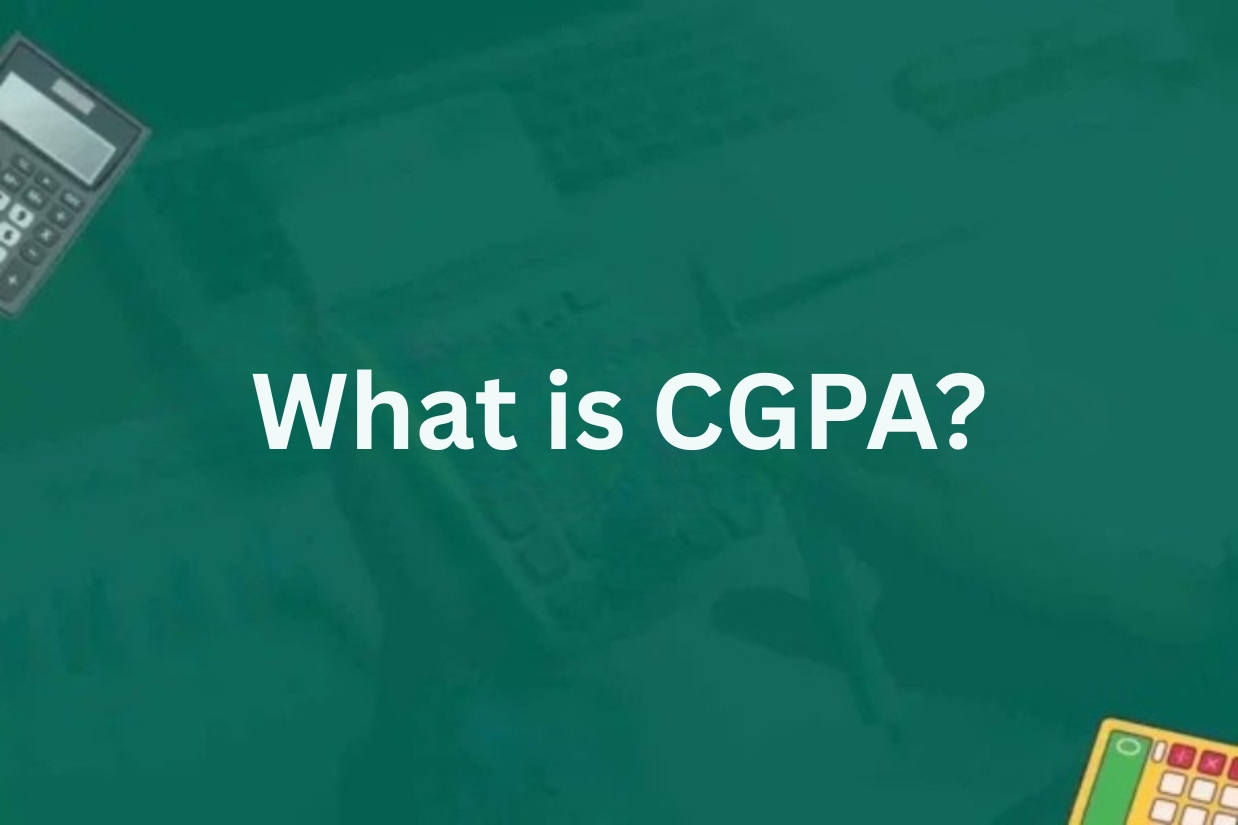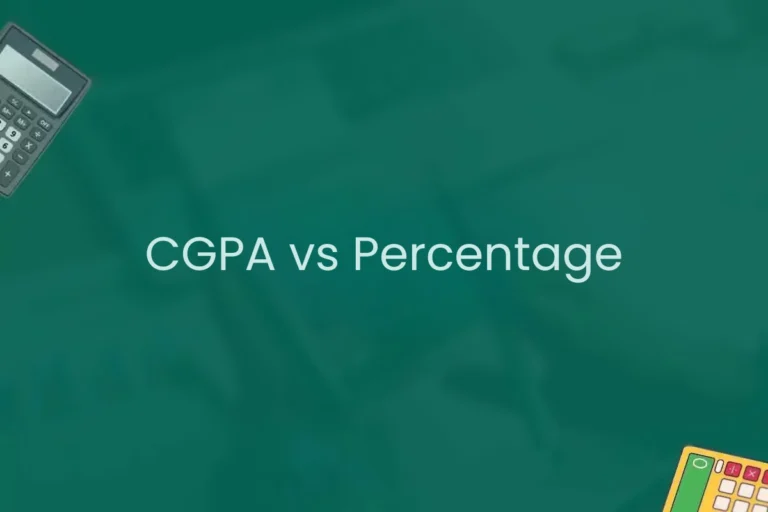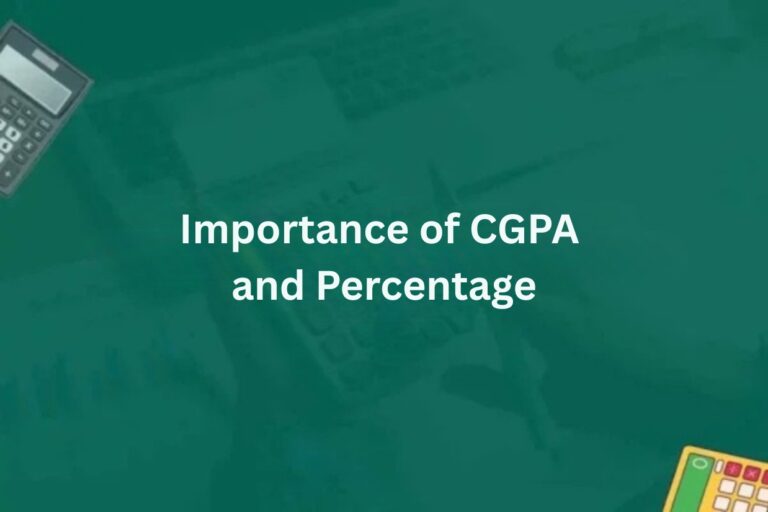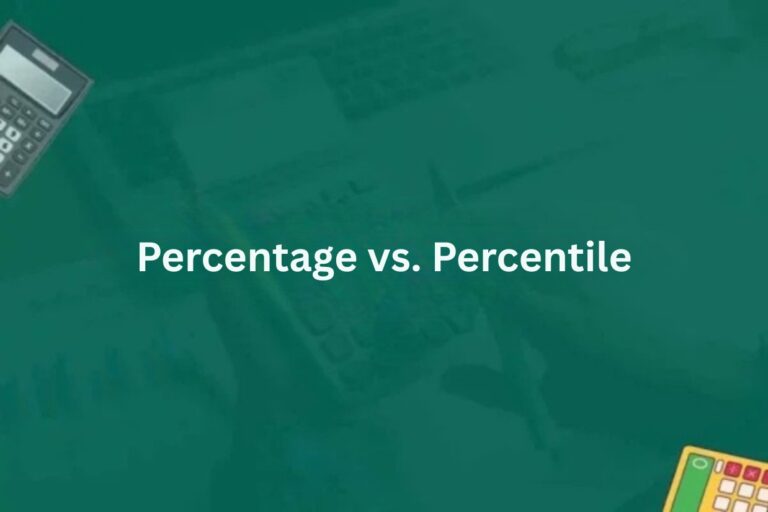What is CGPA? A Complete Guide

Cumulative Grade Point Average (CGPA) is a crucial metric used in educational institutions worldwide to assess a student’s overall academic performance. Whether you’re a student aiming for higher education, an aspiring professional, or simply curious about academic grading systems, understanding CGPA can help you make informed decisions.
Most Use Calculator
What is CGPA?
CGPA stands for Cumulative Grade Point Average. It represents the average of grade points obtained in all subjects over a specified period, typically a semester or an academic year. Many educational institutions use CGPA as a grading standard to evaluate students’ academic performance.
CGPA vs. GPA: Understanding the Difference
Although CGPA and GPA are often used interchangeably, they are distinct:
- GPA (Grade Point Average) is the average grade point for a specific term or semester.
- CGPA (Cumulative Grade Point Average) is the overall grade point accumulated across multiple semesters or years.
How is CGPA Calculated?
The CGPA calculation varies slightly between educational systems, but a common formula is:
For example, if a student earns the following grades:
- Subject A: 4.0 (3 credit hours)
- Subject B: 3.5 (4 credit hours)
- Subject C: 3.8 (3 credit hours)
The CGPA is calculated as:
CGPA to Percentage Conversion
Many universities and institutions provide a standard conversion formula to convert CGPA to Percentage. A commonly used formula is:
For example, if a student has a CGPA of 8.2:
However, conversion methods may differ depending on the institution, so always refer to official guidelines.
Importance of CGPA
CGPA plays a significant role in both academic and professional spheres:
- Education: Many universities set CGPA cutoffs for admissions, scholarships, and eligibility for advanced courses.
- Employment: Some employers use CGPA as a screening criterion for hiring fresh graduates.
- Self-Evaluation: It helps students assess their performance and strive for improvement.
CGPA Grading System in Different Countries
CGPA scales vary globally. Here are some examples:
- USA: 4.0 scale (A = 4.0, B = 3.0, etc.)
- India: 10.0 scale (CGPA = GPA × 9.5 for percentage conversion)
- UK: Percentage-based classification (First-Class, Second-Class, etc.)
How to Improve Your CGPA?
Improving your CGPA requires strategic effort:
- Consistent Study Routine: Stay disciplined with your coursework.
- Effective Time Management: Prioritize subjects based on difficulty and importance.
- Seek Help When Needed: Engage with professors, tutors, or online resources.
- Stay Organized: Maintain track of assignments, exams, and deadlines.
Common Myths About CGPA
- High CGPA guarantees a successful career – While important, skills and practical experience matter equally.
- CGPA is the only criterion for scholarships – Many scholarships consider extracurriculars and leadership roles too.
- A low CGPA means no career opportunities – Many industries value skills over academic grades.
FAQs
What is the full form of CGPA?
CGPA stands for Cumulative Grade Point Average.
How is CGPA different from GPA?
GPA refers to a single term or semester, while CGPA is the cumulative average over multiple semesters or years.
How can I convert CGPA to percentage?
A common formula is: Percentage = CGPA × 9.5. However, always check your institution’s official conversion method.
What is considered a good CGPA?
A CGPA above 3.5 (on a 4.0 scale) or 7.5 (on a 10.0 scale) is generally considered good.
Can a low CGPA affect job opportunities?
While CGPA matters for some employers, many prioritize skills, experience, and interview performance over grades.
Do all universities use CGPA?
No, grading systems vary. Some use percentage-based or letter-grade systems instead of CGPA.
How can I improve my CGPA quickly?
Focusing on high-credit subjects, seeking academic support, and improving study habits can help boost CGPA.
Conclusion
Understanding CGPA is essential for students and professionals alike. It serves as a performance indicator and plays a role in higher education and job applications. However, while maintaining a good CGPA is beneficial, developing real-world skills and gaining practical experience are equally important for career success.





